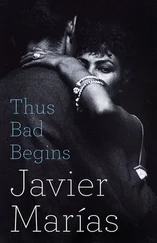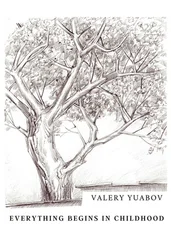“My dear, have you really never looked at yourself?” Kinoko-san insisted. I couldn’t very well ignore her, so I looked at her face and saw that her cheeks were flushed pink and her lips were burning. My answer was, “I understand. Please help me.” But that night, and the next, no help arrived. I grew irritated at myself for just waiting. A woman who waits is too passive. After all, this wasn’t a 1930s ballad. Thinking I would do something decisive at least inside my mouth, I picked up my toothbrush. With a Vivaldi violin concerto racing through my head, I attempted to move the toothbrush at a tremendous pace. My fingers stumbled over themselves, and it didn’t go well. Giving up, I banged on the wall with my hand, which made quite a noise. But still I couldn’t get out. I was trapped. Blood was throbbing in my temples. “What’s the matter?” A worried face; I couldn’t remember whose. “Such a noise, whatever is the matter?” She was speaking politely. As long as they are polite, I don’t get very angry no matter what they say. “Such a noise? Surely you disheard,” I replied, only my tongue stumbled over the words and I said “disheardened.” “Now please stop, it’s time for your meal.”
“I’m simply afflailed.” “So busy.” “Just didn’t manage.” “Still, these days it does seem as if.” When talking to a large company over dinner, one is not so much looking for things to say as walking along a narrow road trying not to touch things one shouldn’t and somehow making one’s way forward. If one says something wrong, the listener’s mucous membranes are injured. The listener groans and opens his eyes wide. When one gets tired of seeing that, one clams up. When spoken to, one doesn’t answer. One wishes, then, to be alone with Kinoko-san. One needn’t watch one’s words with Kinoko-san. On the other hand, one never knows what she will say next. “It twitches, you know. So interesting,” she says, laughing. “But isn’t it a little frightening?” I ask. “Oh no, not at all. After all, it’s one’s own, isn’t it.” “But what if somebody sees you?” “I don’t fret about such things any more.” “Isn’t it a little frightening, it being for instance wet and all?” “Come now. It’s not the least bit frightening. On a rainy day even the window is wet, after all.”
Kinoko-san smelled different all at once. It turned out someone had made her a present of a Chanel perfume called Egoïste. “What a lovely scent, you’ve become a misrecognizable beauty,” I said. Kinoko-san laughed and gave me a look. When a person smells different, it’s as if she’s altogether a stranger, and one becomes a little shy. “It was a gift, you see, from a person I did something for.” It seemed tactless to ask what the something was. She must have understood how I felt, since she added, “Diapers to bath, everything.” I understood then that she was speaking of her son.
This so-called son, I must add, appeared only in conversation, and never in person. At dusk sometimes, when Kinoko-san’s eyes lost their focus and stared into space, I would think, “She’s thinking about him,” and I would stare into space, too. I would see countless amoebas drifting in the air. They might have been nothing but the dust that plays in the liquid surrounding the eyeball. “Was there a visit?” I asked, but Kinoko-san didn’t answer. So I reached over to the dry slice of bread on Kinoko-san’s plate, and quickly pushed it into my mouth. On Sundays we had bread. At first I thought it was there to represent Christ's body, but it turned out that on Sundays the cook had the day off and wasn’t there to cook the rice, so there was bread instead.
At dawn on Monday, when scattered footsteps began to disturb the ear’s horizon, Kinoko-san suddenly said something like, “Isn’t it strange to say ‘packaged bread.’ Isn’t bread itself a kind of package?” I ignored her. At such times if I start to answer her, the other people might think I am at her level, and that would be frightening. The staff turned Kinoko-san’s body over like a sheet of paper and said accusingly, “You didn’t try the bread. There is no excretion, which suggests the bread wasn’t eaten. You must have thrown it away somewhere.” Kinoko-san only blinked her eyes with a puzzled air and said nothing. Three of them came over and tapped her back. A cloud of dust rose and Kinoko-san’s back turned white. Kinoko-san narrowed her eyes with a look of great contentment, but I couldn’t breathe with all the dust and began to cough. There was a great commotion, “Where’s the bread? The bread? The bread?” One of them was bending over with a twisted neck to look under the bed. Another checked the window locks. O bread, o bread, why hast thou forsaken me?
The morning confusion subsided, and the staff disappeared. Somewhere a telephone is ringing. There is no receiver so I can’t take the call. The people here are quite malicious, having a phone specially made with no receiver. Still, it’s better than nothing. Even if you can’t take the call, a call is still a call. “It’s ringing!” I think, and my upper body grows warm. Apparently there are still people who call me. After a while the telephone falls silent, without my having touched it. Then Kinoko-san’s telephone begins to ring. I tap Kinoko-san’s back, saying, “It’s ringing, it’s ringing.” Kinoko-san pretends not to notice. She seems to want me to think she gets so many phone calls she needn’t answer every one. I don’t mind, but she’s certain to regret it if she doesn’t pick up out of pride, just when someone is trying to call. Perhaps in hell there is no telephone, and even if there is one, maybe no one will try to call. “They’re calling, don’t you hear?” I tap harder. Suddenly, someone pins my arms from behind. “Stop it. What are you thinking? You shouldn’t hit people.” Some juvenile delinquent girls are holding me back and shouting. These people don’t like to see me keeping company with Kinoko-san, so every now and then they blow up. They are imprisoned by jealousy, envy and spite, so they quite often misunderstand one’s actions. They don’t have the ears to hear my explanations. To some extent, one has to forgive them on account of their youth, but I can’t forgive people who use their youth as an excuse to oppress others. I see a palm in front of my eyes, so I bite it as hard as I can. My teeth impose themselves between thin bones set together like the sticks of a fan. There is a scream, and the hand flies up with amazing force, jerking my mouth along with it so that my jaw is almost dislocated, and after that I don’t remember anything.
Again I wake up. I try to stifle my breathing, expecting Kinoko-san to start up again with her “Rend me your ear,” but everything is completely silent, I don’t hear a sound. I don’t even hear Kinoko-san breathing. I want to turn on a light, but I can’t bring myself to get up. Of course if I just lie here thinking about it, soon the sun will rise and the room will grow bright, but every day the sun comes up a little later than before. I get so tired of waiting I almost say, “Never mind. Dark is fine. Stay that way.” If night were extended and it became quite normal to have one’s morning and afternoon in the dark too, that would really be all right eventually. Since one’s suffering is constituted by the waiting, having no light at all would be rather a relief. If it’s always dark, I’ll go out in the dark. If it’s supposed to be dark, one isn’t afraid of it anymore. The secretly glinting stars; the lights of distant cities. I rise in one smooth motion. My body is very light and I can get up without tensing any part of it. My head is strangely clear. The pain in my bones and the fever in my cheeks have subsided as if they had never been there, and like a dancer I stand on my toes on the bed. If I lift myself up a little, I might simply float away like mushroom spores. I give a little leap and my fingers touch the ceiling. It’s tremendous fun. In front of my eyes stretches a row of trees that look like telephone poles. I hadn’t noticed before that there were trees growing here. They are so tall I can’t see their tops. High up on one of their trunks, Kinoko-san clings like a koala bear. Her left arm is twined around the eaves of the roof and she is waving with her right hand. Did she climb up so high all by herself, or did she leap from the window? “Do come up, dear, do join me,” Kinoko-san sings, using the strange musical scale of a certain sort of bush warbler called something or other. Somehow, strength gathers in my shoulders and I find myself beginning to move my arms as if they were wings. I feel like flying, but my hips still seem too heavy for this. My head is heavy as a sandbag, too. If I fall, my hipbones will break and my skull will be shattered. When Kinoko-san’s voice calls invitingly, “Do come,” I feel that I cannot fall. Maybe if one simply gathers up one’s courage to fly, one doesn’t fall. Maybe when you alight on a voice, gravity fails. I have just placed my foot on the windowsill when I hear a huge commotion behind me. Cold hands suddenly insert themselves beneath my arms and I am pulled roughly back into the room. Palms smelling of soap become vivid flesh-colored butterflies flying around before my eyes. I find myself lying on the bed.
Читать дальше












